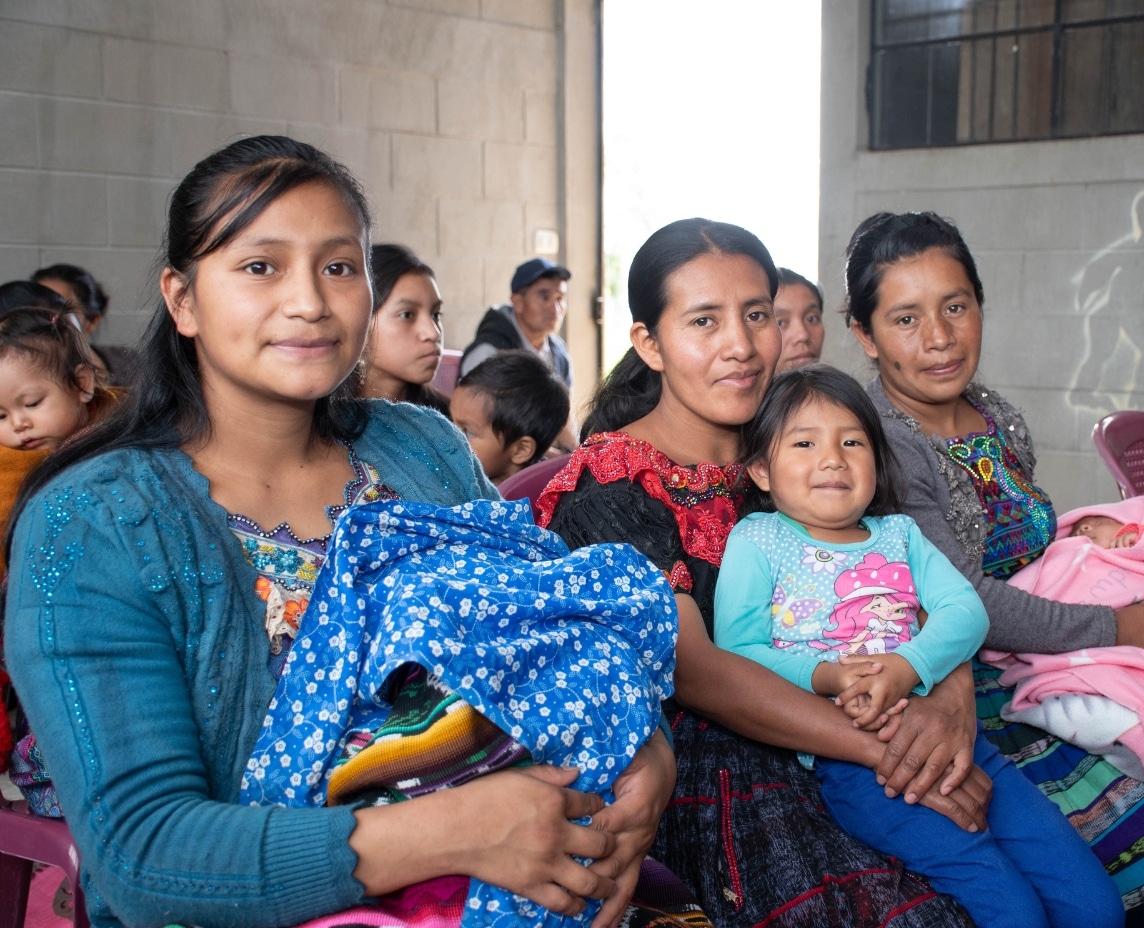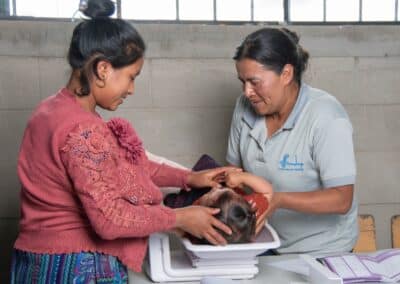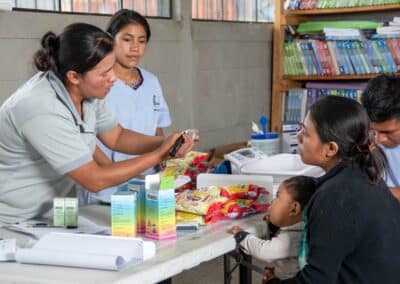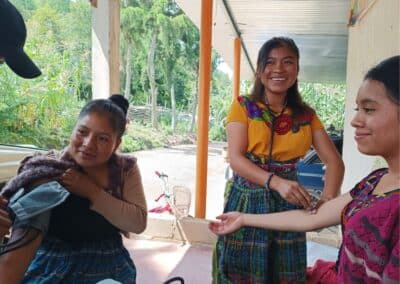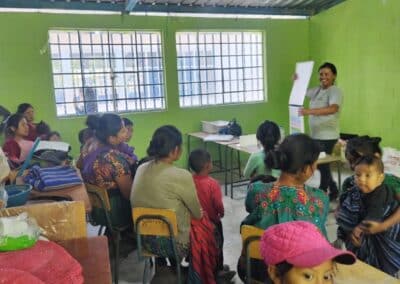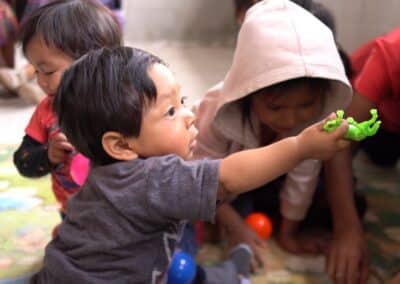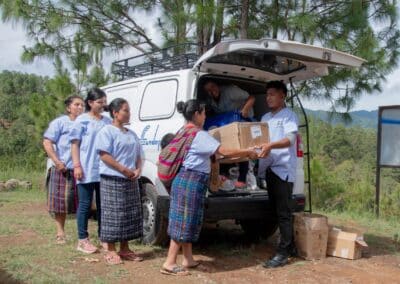Food is an essential human right and, when it is not accessible, it can negatively affect people’s lives. To ensure sufficient and adequate food, it is essential that food is available and accessible, either through its production or its acquisition in the market.
The project we are developing in the Totonicapán area of Guatemala, supported by the Madrid City Council, addresses this essential need and, at the same time, aims to reduce the socioeconomic gap in indigenous populations. This project offers knowledge and actions in the agricultural field to strengthen food and nutritional security at various levels, from the individual to the community, while incorporating a component aimed at improving nutritional health.
The towns of Santa Lucía, La Reforma and Santa María Chiquimula are the focus of our work, where together with our local partner Foundation for the Integral Development of Socio-Economic Programs (FUNDAP), we promote the production of nutritious food and its inclusion in the household diet. This is carried out with a comprehensive approach that includes training in good agricultural and environmental practices, as well as early stimulation days to improve children’s health.
In the first part of the project, significant progress has been made in the health and nutritional health component. The training of 112 women as volunteer health promoters has led to a significant increase in community involvement and social service. The health promoters play a crucial role as a link between people and medical services. In addition to raising awareness and training on health issues, they have proven to have a great capacity for organization, resource management and attention to the needs of their community, including comprehensive accompaniment of patients during their medical care. The adoption of methodologies adapted to the low academic level and the use of the K’iché language of the population has also contributed positively.
On the other hand, the work with the local government and health services has made it possible to carry out workshops to measure children’s growth and provide nutritional supplements when necessary in coordination with the health authorities. In addition, pregnant mothers have been followed up, also addressing issues of mental health, self-esteem and gender violence, which has raised awareness, training and guidance on these problems.
All this has helped build trust in the communities and has allowed the project to focus on another component: agriculture and animal husbandry. In this line, 141 people have been trained as promoters to provide guidance and support to farmers and livestock breeders to improve their practices and performance in the agricultural sector, as well as to store, preserve and transform healthy food.
In a practical way, we have worked on terraced production, soil disinfection with organic products, creation of compost bins, grafting practices and training on the responsible use of water. In addition, the population has been trained on the main diseases of native birds and the application of the triple avian vaccine, as well as the care and maintenance of dual-purpose birds (meat and eggs), which contribute to the generation of income and high-protein food in the communities.
In summary, the work to improve nutritional health and empower indigenous populations through the training of health promoters, sustainable agricultural practices and support to farmers and ranchers contributes not only to satisfy the basic need for food, but also to reduce the socioeconomic gap and improve the quality of life in these communities.





